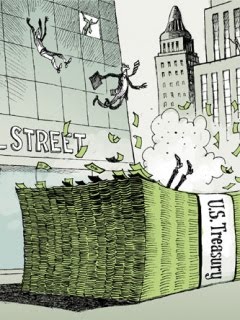Listed on the London Stock Exchange:
BARC 305.10p +6.20p (+2.07%)
CAU 47.50p -0.25p (-0.52%)
CRWN 30.50p 0.00p (0.00%)
FPER 5.25p +0.25p (+5.00%)
FCCN 46.00p +0.50p (+1.10%)
GAR 3.38p +1.63p (+92.86%)
JKX 234.30p -5.60p (-2.33%)
LLOY 56.62p +0.82p (+1.47%)
LLPE 60.00p -0.75p (-1.23%)
MAI 157.00p +9.00p (+6.08%)
QQ. 129.50p +12.30p (+10.49%)
RBS 46.73p +1.48p (+3.27%)
UNG 2.62p -0.13p (-4.55%)
Listed on New York Stock Exchange:
C $3.96 +$0.21 (+5.60%)
China reassures the markets that they are not selling eurozone debt indicating that they have confidence in the eurozone economy. This sent the markets in an overoptimistic mood so the FTSE All-Share went up by 2.38% this week. My portfolio went up by 2.77% this week, narrowly beating the market, and my gain is now about 0.5%.
GAR, a recruitment consultancy for management roles, went up massively because two private equity gurus Jon Moulton and Pierce Casey decided to invest £2 million into the company. One of it's directors, Jeremy Daniels, agreed to invest a further £35,000 into the firm. The price of Norman Broadbent has been renegotiated from £5.5 million to £2.03 million because one of it's subsidiaries, BNB, went into voluntary liquidation because trading during 2009 was much worse than expected. They are due to report a loss of £3.5 million for 2009 due to adverse trading conditions relating to the brutal recession. I might invest a bit more money into this firm since the 30 existing shares will be consolidated into one new share [so that the amount invested before and after stays the same], trading conditions will definitely get better when the economic conditions improve and it is a contrarian stock in terms of P/E, PBV and P/CF as of 24/5/2010. However, the company is still heavily geared. Also, with new faces of good calibre, the firm will eventually make good profits in the future.
QQ., a defence company, made a pre-tax loss of £66.1 million due to a delay in orders. Therefore their after tax earnings went down by 30%. Dividends are suspended for a year. However, over the past four years before the latest result, profits and dividends have gone up at a generally increasing rate. Dividend yield has gone up a increasing rate as well. I will definitely invest more in the near future though I cannot say exactly when. I will have to do another detailed analysis on the company in the near future. The analysis will be available at around a few weeks from now at the very latest.







